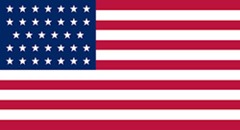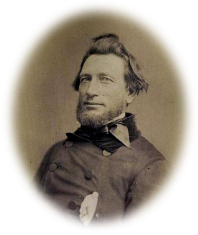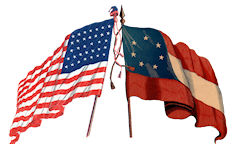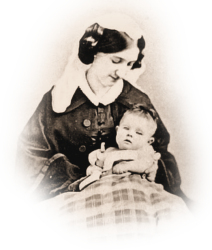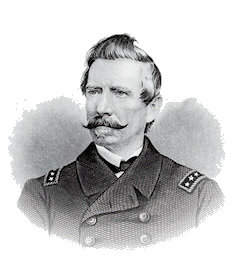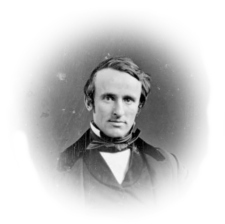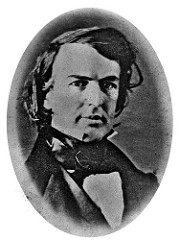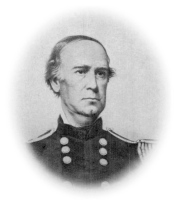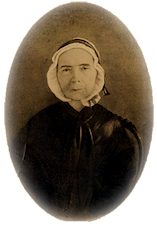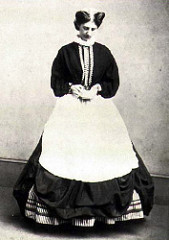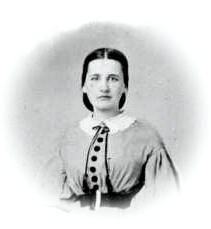August 12.–Charles J. Faulkner, late U. S. Minister to France, was arrested in Washington by the Provost Marshal. The order for his arrest was issued from the War Department. A heavy detachment of infantry accompanied the Marshal to guard against any disturbance that the arrest might prompt. Mr. Faulkner acknowledged the authority, and signified his readiness to accompany the officer. He was taken to the jail, where the other prisoners of war are confined. Mr. Faulkner occupies a lower floor of the jail, and has a ward adjoining that of Dr. Fleming, of Virginia, who is also a prisoner and a man of wealth and influence. When first arrested, he was somewhat excited, but he shortly recovered himself, and during the afternoon conversed freely with one of the officers on the condition of France. When asked how the rebellion was regarded there, he answered, “France, sir, deeply regrets it.” He also stated that he had his passes all ready, and intended to leave for his home in Virginia today. In his conversation he carefully avoids expressing any opinion as to the political condition of the country. The charges upon which the arrest is based, are his successful efforts to procure arms in Europe for the use of the rebels, and the fact that he was going home to assume command of a regiment of rebels who had elected him colonel.–N. Y. Times, August 13.
–Abraham Lincoln, President of the United States, in accordance with a resolution of Congress, issued a proclamation, appointing a day of public fasting and prayer, to be observed by the people of the United States with religious solemnities and the offering of fervent supplications to Almighty God for the safety and welfare of the country, His blessings on the national arms, and a speedy restoration of peace.–(Doc. 178.)
–At one o’clock this afternoon, the office of the Democrat, a secession sheet published at Bangor, Me., was visited by a large number of people. During an alarm of fire, a crowd entered the office, cleared it of every thing it contained, and burned the contents in the street. Mr. Emery, the editor of the paper, escaped unharmed. A man who made some demonstrations in opposition to the acts of the mob, was badly used, but was finally rescued and put in jail.
–Judge Catron, of the United States Supreme Court, was expelled from Nashville, Tenn., by a Vigilance Committee, for his refusal to resign his office under the United States Government.–Baltimore American, August 14.
–Gen. Wool was ordered to the command of the Southeastern District of Virginia, headquarters at Fortress Monroe.–The Eleventh Regiment of New York Volunteers (First Fire Zouaves) left Washington for New York.–Troy Times, August 13.
–Twenty-two released prisoners of war arrived at Fortress Monroe from Norfolk, Va., under a flag of truce. They comprise the following persons:–Surgeons, Edward T. Taylor, First New Jersey; Jacob A. Stewart, First Minnesota; Eugene Peugnet, Seventy-first Now York; Foster Swift, Eighth New York; S. O. Thunkins, Fourth Maine; B. F. Buckstone, Fifth Maine; Wm. H. Allen, Second Maine; Jas. M. Lewis, Second Wisconsin; Gustavus Winston, New York Eighth; Chas. DeGraw, do.; _____ Normal, Seventy-ninth New York. These surgeons remained at Sudley Church and the stone building after the battle, attending the wounded, and were taken prisoners. They remained, some at Bull Run and others at Manassas Junction, attending upon the wounded for two weeks after the battle, and then were sent to Richmond. Finally they were released on parole and sent within the national lines, via Norfolk They have been courteously and kindly treated by the military authorities of the “Confederate ” States, and give the most unqualified denial to all stories of the killing or ill-treatment of the wounded. Mrs. Curtis, of New York, who went out a day or two after the battle and was taken prisoner, is also released.–(Doc. 179.)
–Ben. McCulloch, in a general order, congratulated “the army under his command” upon the victory at Wilson’s Creek, and hoped that “the laurels they had gained” would “not be tarnished by a single outrage.” He also issued a proclamation to the people of Missouri, calling upon them to act either for the North or the South.–(Doc. 180.)

